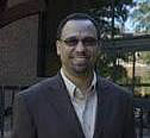Commentary on Luke 12:49-56
On April 15, 2013, two bombs went off at the finish line of the Boston Marathon.
I was reflecting on this passage during that same week. As I write, the perpetrators — assuming it was more than one individual — have yet to be caught. The initial debate that circulated in the media was whether to use the language of terrorism for this needless act. Concern for public reaction was part of the dilemma. What was circulating — whatever terms are used for this threat — was a general sense of fear. Not fear as in a fear for one’s life but a sense of fear that this is the new context in which U.S. citizens live. It was a fear of the unknown that could wreak havoc at any moment at any place during any major event.
Commentary
The most troubling statement in this passage appears in 12:51. Did Jesus not come to bring peace? Was Jesus not the “savior” of Zechariah’s prophecy, the messianic figure who would “guide our feet into the way of peace” (1:79)? In Matthew, the parallel verses fall in the context of Jesus’ “mission” teaching to the disciples (cf. 10:34-36); in that context, the use of the term “sword” and the language of “enemies,” make Matthew’s Jesus appear more militaristic. But Luke’s Jesus is less so.
As this passage suggests, the opposite of peace, in Jesus’ teaching, is not “war” but “division” (diameriosmos). And, this division is of a specific kind: Jesus’ coming has created much conflict within families, synagogues, and the larger public arena. Certainly, by the author’s time (a couple of generations after Jesus’ death), he has experienced or heard about the break-up of close-knit networks. Even these divisions, however, are ominous sounding since divided houses usually do not survive (cf. 11:17-18).
Here, we get a glimpse of the apocalyptic Jesus, rarely discussed in the Gospels. Does Jesus really desire to scorch the earth (cf. 12:49)? Probably not! This seems to be one of Jesus’ many uses of hyperbole, common in his teaching. But why is Jesus so dramatic? Well, he rarely gets stressed (cf. 12:50). His awareness of the upcoming death (i.e., “baptism”; cf. Mark 10:38-39; Romans 6:4) seems to be getting to him.
The term “stress” is from the Greek verb (syn-echo), and may also be translated as “distressed.” It has the meaning of “holding together,” “holding tightly” or “squeezing.” In Luke’s Gospel it is associated with “sickness,” like “holding on to a fever” (cf. 4:38), or, stressful situations, like holding on to fear (cf. 8:37). Or, sometimes Luke uses the term to describe crowds or enemies “pressing in” on others (cf. 8:45; 19:43; 22:63). Only Luke uses this term to describe how Jesus is feeling. The NRSV’s “what stress I am under” captures the verb well.
Furthermore, Jesus recognizes how this stress is causing a shift in his own mission. “From now on,” he says, in verse 52. So, Jesus turns to violent images of “masters” in his parables to Peter and the other disciples (cf. 12:35-48) and forewarnings about the need to avoid judges (cf. 12:54-59). This may not be an outright critique of the legal system in his day but Jesus appears to have little regard for “judges” with his eschatological outlook. He himself does not wish to play the role between quarreling brothers over inheritance rights (cf. 12:13-14) nor does he hesitate to tell parables in which “unjust judges” act (cf. 18:1-8). Jesus’ advice to settle out of court (cf. 12:58) is shared by Paul, although the apostle does not credit Jesus with his own advice (cf. 1 Corinthians 6:1-8). Jesus’ point for followers, in chapter 12, appears to be to settle their accounts on their own.
Finally, the ancients were apparently better at predicting weather patterns than we are (cf. 12:54-55), but were similar to us in their (in)ability to predict the future of God’s activity. But Jesus has higher expectations for them. And, he has even higher expectations for his disciples who have been entrusted with much (cf. Luke 12:48).
So what?
What is stress doing to us all? Real stress can make us all a bit more apocalyptic wishing all kinds of strange scenarios, especially for those who (apparently) are causing our stress levels to increase.
On another note, do we ever think about the (negative) consequences of our words and actions? Do all benefit? Or, is there a privileging of “us” over against “them” … in the decisions at the local education boards? Perhaps Jesus was right: it may be preferable to settle with the “accuser” before you get to the county courthouse. It is counter-cultural for us to follow such advice, but perhaps that’s the point. Later, in a different context, Paul will give similar advice to the Corinthian Christians (cf. 1 Corinthians 6), even suggesting that it would be preferable to accept the wrong and swallow the loss.
The Jesus of this passage is a bit unsettling and we would do well to let him be so. It is easier, of course, to present the “meek and lowly” Jesus as the one who desires personal friendship with twenty-first century individuals. But that Jesus is not the one of Luke 12. The Gospels also present a Jesus who occasionally struggles with his mission, who expects his followers to understand the “season” they are in, and who leaves us with as many questions as answers. In a similar vein, there are many events in our contemporary setting that leave us with few answers.


August 18, 2013